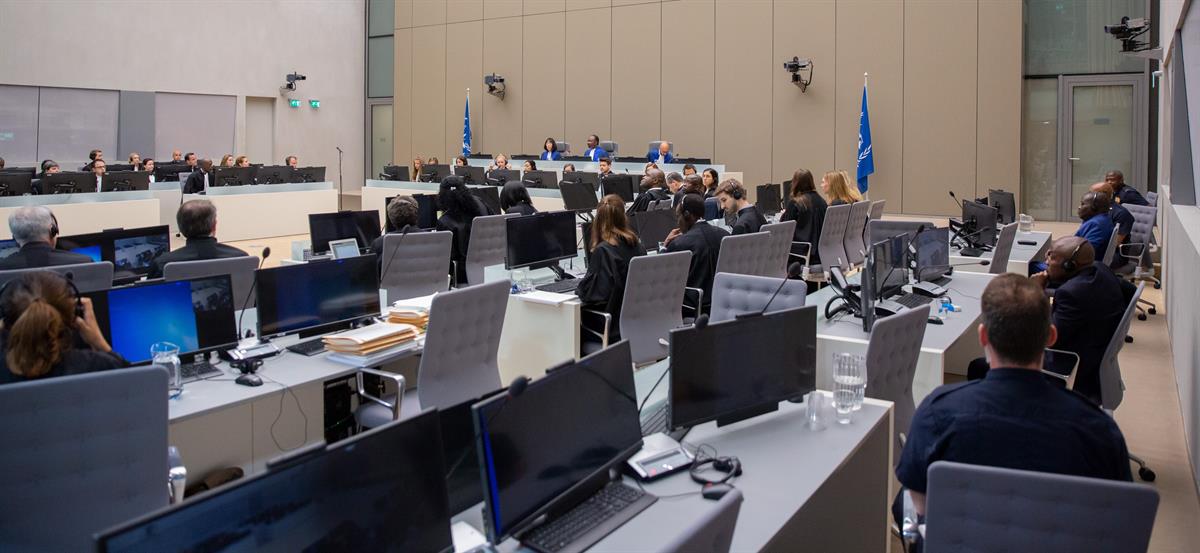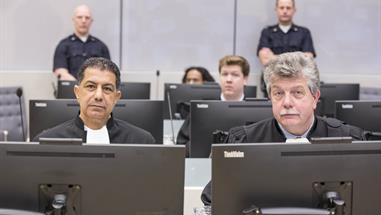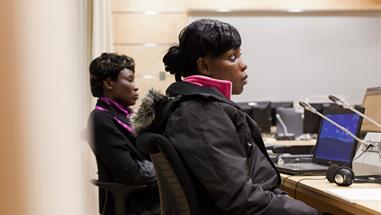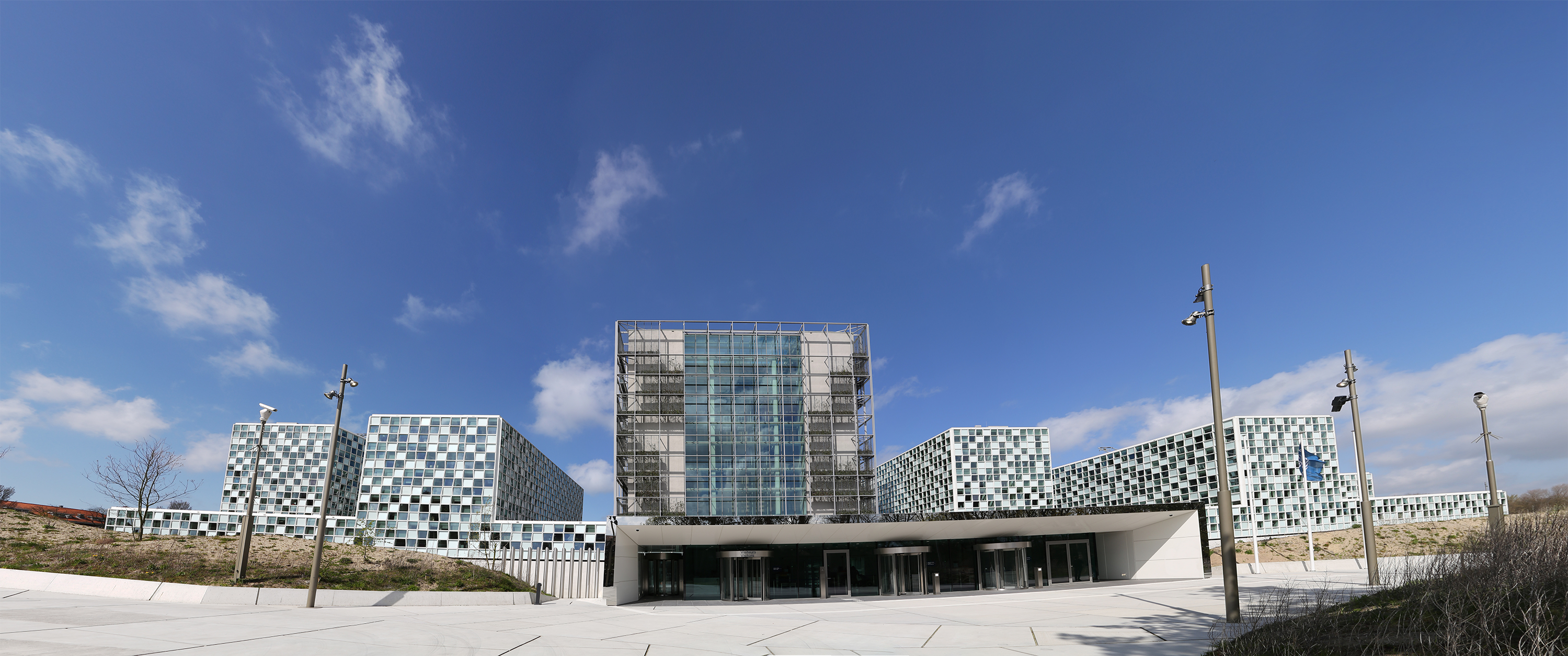
La Cour pénale internationale (CPI) mène des enquêtes et, le cas échéant, juge les personnes accusées des crimes les plus graves qui touchent l’ensemble de la communauté internationale : génocide, crimes de guerre, crimes contre l’humanité et crime d’agression.
« Cette cause … est la cause de toute l’humanité »
Kofi Annan, ancien Secrétaire général de l’Organisation des Nations Unies
La Cour participe à une lutte mondiale visant à mettre un terme à l’impunité et s’emploie, au moyen de la justice internationale, à amener les auteurs des crimes à répondre de leurs actes et à contribuer à empêcher que ces crimes ne soient à nouveau perpétrés.
Ces objectifs, la Cour ne peut pas les atteindre seule. En qualité de juridiction de dernier ressort, elle s’efforce de compléter les juridictions nationales et non de les remplacer. Régie par un traité international appelé le Statut de Rome, la CPI est la première juridiction pénale internationale permanente.
Vers la stabilité et la paix durable
La justice est une condition essentielle à une paix durable. La justice internationale est capable de contribuer à instaurer une paix à long terme, une stabilité et un développement équitable au sein des sociétés sortant d’un conflit. Ces éléments sont fondamentaux pour construire un avenir exempt de violence.
Principales caractéristiques
Également dans cette section

Les procès sont équitables
Les juges de la CPI mènent les procédures judiciaires, en veillant à leur déroulement équitable.

Le Bureau du Procureur est un organe de la Cour indépendant
Le Procureur effectue des examens préliminaires, mène des enquêtes et il est le seul à pouvoir porter des affaires devant la Cour.

Les droits des personnes mises en cause sont respectés
Les personnes mises en cause ont droit à ce que leur cause soit entendue publiquement, équitablement et dans une langue qu'elles comprennent parfaitement, et plus.

Les victimes ont voix au chapitre
Les voix des victimes se font entendre dans la salle d'audience, car le Statut de Rome leur accorde un droit sans précédent, celui de participer aux procédures de la CPI.Regarder maintenant.

Les victimes et les témoins qui participent sont protégés
La CPI dispose d’un programme de protection des victimes et des témoins qui utilise à la fois des mesures opérationnelles et des mesures de type procédural.

La sensibilisation et l'information instaurent un véritable dialogue
La Cour noue un dialogue direct avec les communautés qui ont subi des crimes relevant de sa compétence. Ces échanges leur permettent de communiquer directement avec la Cour et d’acquérir le sentiment de s’approprier le processus judiciaire.

La lutte contre l'impunité continue
En appuyant la Cour, les pays qui ont intégré le système du Statut de Rome ont pris position contre ceux qui, par le passé, n’auraient eu aucun compte à rendre à personne après avoir commis des crimes internationaux systématiques et généralisés. La CPI exhorte tous les pays à se joindre à la lutte contre l’impunité, afin de veiller à ce que les auteurs de ces crimes soient punis et de contribuer à empêcher que de tels crimes ne soient à nouveau perpétrés.
Les faits et les chiffres
Actuellement, la Cour compte :
Près de 900 membres du personnel : originaires d'environ 100 États.
6 langues officielles : anglais, arabe, chinois, espagnol, français et russe.
1 bureau de liaison auprès des Nations Unies à New York et 7 bureaux extérieurs : Kinshasa et Bunia (République démocratique du Congo, « RDC ») ; Kampala (Ouganda) ; Bangui (République centrafricaine, « RCA ») ; Abidjan (Côte d’Ivoire) ; Tbilissi (Géorgie) ; et Bamako (Mali).
2 langues de travail : anglais et français.
Siège : La Haye (Pays-Bas).
Budget pour 2023 : 169,649,200 million d'euros.
À ce jour, la Cour a été saisie de 31 affaires dont certaines comportaient plus d'un suspect.
Les juges de la CPI ont délivré 42 mandats d'arrêt. Grâce à la coopération des États, 21 personnes ont été détenues au quartier pénitentiaire de la CPI et ont comparu devant la Cour. 17 personnes sont toujours en liberté. Les charges portées contre 7 personnes ont été abandonnées suite à leur décès.
Les juges de la CPI ont également délivré 9 citations à comparaître qui ont toutes été respectées.
Les juges ont rendu 10 condamnations et 4 acquittements.